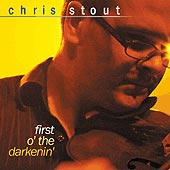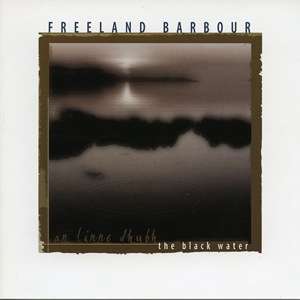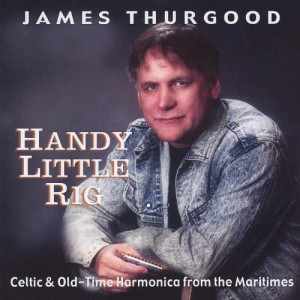 Solo instrumental efforts by band members or ex-band members sometimes start out as a one-person venture, but the end result is often a conglomeration of ideas and influences suggested by fellow musicians that have come on board. In this review we look at three essentially solo albums by noted instrumentalists who play very distinctive instruments – fiddle, accordion and harmonica. All are well known in their chosen circles, but only one of these records is truly a solo album in every sense of the word.
Solo instrumental efforts by band members or ex-band members sometimes start out as a one-person venture, but the end result is often a conglomeration of ideas and influences suggested by fellow musicians that have come on board. In this review we look at three essentially solo albums by noted instrumentalists who play very distinctive instruments – fiddle, accordion and harmonica. All are well known in their chosen circles, but only one of these records is truly a solo album in every sense of the word.
Chris Stout from the Shetland Islands is known for his work with Fiddler’s Bid. The band is like a Shetland version of the American outfit Fiddle Fever. Now comes his first solo album First o’ the Darkenin’, the title referring to twilight, that space between day and night when an air of expectancy hangs about the atmosphere. Stout relates this as his favorite time of day, time for creating music fuelled by the imagination and the promise of the night ahead.
First o’ the Darkenin’ started out as a solo album but quickly involved other people including harpist Catriona McKay, Fraser Fiefield, Malcolm Stitt and Ewan Vernall; things changed, grew, and evolved. What we end up with is a combination solo and band effort, the results of which are far more successful than initially expected. Musically it shifts from very traditional sets to more experimental jazz flavoured pieces that cross the Scots with the Nordic and the Netherlands, somewhere between ECM jazz and Scottish traditional music.
“Darkenin’ ” suggests everything from Moving Hearts on Scandanononymous to the improvisational strains of the title track. Then there is a simple and gorgeous harp/fiddle duet ‘Da Day Dawn/Greenland Man’s Tune’ which threads quietly through five succulent minutes. You also have an all-out Irish/Scots set in ‘Three Reels’ with plenty of excitement. Every track is different in feel, origin and atmosphere, with Chris Stout’s fiddle easily holding its place alongside Fiefield’s saxes and pipes and McKay’s harp and piano, while Ewan Vernall and Malcolm Stitt provide the rhythmic engine room. First o’ the Darkenin’ is a gloriously well-hewn and varied set that puts Chris Stout out front of the new Scottish fiddle pack.
 Freeland Barbour first came to my notice as the original accordionist with Silly Wizard. Prior to Phil Cunningham joining up it was Freeland Barbour’s accordion playing that fuelled the instrumental lineup with Johnny Cunningham’s fiddle and Andy M. Stewart’s tenor banjo. Having played on Silly Wizard’s debut album in 1976, Freeland Barbour left and formed The Wallachmore Ceilidh Band and made several solo albums.
Freeland Barbour first came to my notice as the original accordionist with Silly Wizard. Prior to Phil Cunningham joining up it was Freeland Barbour’s accordion playing that fuelled the instrumental lineup with Johnny Cunningham’s fiddle and Andy M. Stewart’s tenor banjo. Having played on Silly Wizard’s debut album in 1976, Freeland Barbour left and formed The Wallachmore Ceilidh Band and made several solo albums.
An Linne Dubh, or, to give its English translation, The Black Water, is Barbour’s latest effort. On it, he plays all the instruments involved, which include accordions of various persuasions and piano. The use of button and piano accordion is particularly worthwhile as I had always thought of Freeland Barbour as a piano box player; it is an interesting experience to hear him play button accordion. The combination of piano accordion and piano works effectively on plaintive airs such as ‘Fear A Bhata’ while the piano box gets its chance to flourish on ‘The Piper’s Polka’, one of Donald MacLeod’s tunes complete with a steady country dance rhythm. ‘Sine Bhan’ — ‘Fair Jean’ — uses the bass drone strongly to create a melancholy atmosphere while ‘Tomintianda’, a 12/8 march, exhibits a stately, almost regal, grace before going into Tom Anderson’s ‘The Train Journey North’, which I thought was Scottish in origin but referred to the Dublin/Belfast journey. ‘The Dancing Master’, an Irish jig, features Barbour’s button accordion playing, which is stylish and surefooted. Tribute is paid to Robert MacDonald, the original accordionist with Runrig, and to Margaret Cameron of Pitlochry, who started Freeland Barbour off on the accordion. The Black Water is not only an enjoyable and successfully conceived solo album, it also offers enlightening insights to his musical life and career.
 The final CD in this little solo set is James Thurgood’s Handy Little Rig, subtitled ‘Celtic and Old-Time Harmonica from the Maritimes’. Recorded in Nova Scotia in 2002 during the long hot summer, this is an entirely live affair recorded ‘off the board’, with no punch-ins or overdubs. It’s very much a what-you-hear-is-what-you-get album, with two instruments – harmonica and guitar – and a bunch of tunes from Ireland, Scotland and America with some Cape Breton and Nova Scotia tunes thrown in. Harmonica players from the Maritimes, apart from Tommy Basker’s album The Tin Sandwich some years ago, are not a regular sight on my doorstep so Handy Little Rig is worth noting for that reason alone.
The final CD in this little solo set is James Thurgood’s Handy Little Rig, subtitled ‘Celtic and Old-Time Harmonica from the Maritimes’. Recorded in Nova Scotia in 2002 during the long hot summer, this is an entirely live affair recorded ‘off the board’, with no punch-ins or overdubs. It’s very much a what-you-hear-is-what-you-get album, with two instruments – harmonica and guitar – and a bunch of tunes from Ireland, Scotland and America with some Cape Breton and Nova Scotia tunes thrown in. Harmonica players from the Maritimes, apart from Tommy Basker’s album The Tin Sandwich some years ago, are not a regular sight on my doorstep so Handy Little Rig is worth noting for that reason alone.
Thurgood was born in 1956 in the village of Wallace on the north shore of Nova Scotia, but grew up in Windsor, Ontario, and spent summers in Prince Edward Island and Cape Breton, and eventually worked all across Canada.
Playing Celtic and old time music, and making clear distinctions between each type, his musical approach is both assured and academically sound. ‘Fisher’s Hornpipe’ is rendered in the old time vein as opposed to the more often-used Celtic style, while common session tunes like ‘The Boys of Blue Hill’ get an aural makeover, crossing easily into the old time repertoire. At times he plays in a clean breathy style, on ‘I Lost My Love’ sounding similar to Brendan Power. Thurgood also sings ‘My Gallant Brigantine’, collected by Dr. Helen Creighton, which shares the same tune as The Sands Family’s version of ‘The Rambling Irishman’, in a solid robust vocal style. Kevin Roach’s guitar accompaniment is energetic and unobtrusive. Handy Little Rig as an album features some dynamic harmonica playing and well thought out arrangements. It is a very enjoyable listen and worth acquiring.
So there you have three fine instrumentalists playing their respective styles of music, working this time in a solo capacity. Accompaniments can vary from the most elaborate of backings in Chris Stout’s case to simple guitar or piano backings used by Freeland Barbour and James Thurgood. What does emerge from these three diverse recordings is a wealth of good music all rooted in its own home places while also acknowledging the influence and existence of a wider world of sound and style beyond their native shores.
[John O’Regan]
(Greentrax, 2004)
(Macmeanmna/Bonskeid Music, 2004)
(James Thurgood, 2004)
